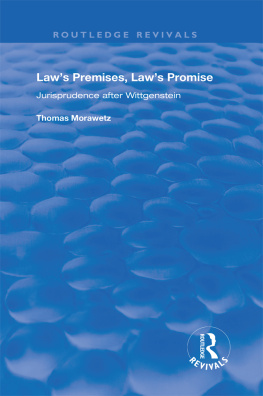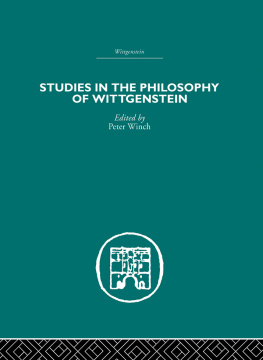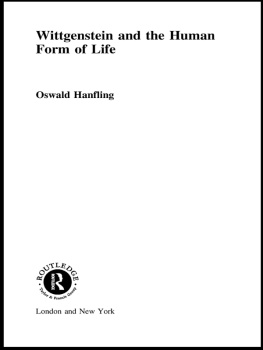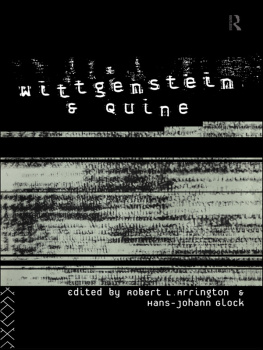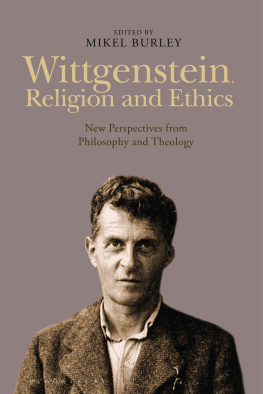First published 2000 by Ashgate Publishing
Reissued 2019 by Routledge
2 Park Square, Milton Park, Abingdon, Oxon, OX14 4RN
52 Vanderbilt Avenue, New York, NY 10017
Routledge is an imprint of the Taylor & Francis Group, an informa business
Copyright Thomas Morawetz 2000
All rights reserved. No part of this book may be reprinted or reproduced or utilised in any form or by any electronic, mechanical, or other means, now known or hereafter invented, including photocopying and recording, or in any information storage or retrieval system, without permission in writing from the publishers.
Notice:
Product or corporate names may be trademarks or registered trademarks, and are used only for identification and explanation without intent to infringe.
Publisher's Note
The publisher has gone to great lengths to ensure the quality of this reprint but points out that some imperfections in the original copies may be apparent.
Disclaimer
The publisher has made every effort to trace copyright holders and welcomes correspondence from those they have been unable to contact.
A Library of Congress record exists under LC control number:
ISBN 13: 978-1-138-71130-3 (hbk)
ISBN 13: 978-1-315-20047-7 (ebk)
1. On Method: Games, Rules, Practices
Anyone writing philosophy in the shadow of Wittgenstein is likely to be preoccupied by the metaphor of games. Wittgenstein seems to recommend that we look at familiar subjects of philosophical scrutiny, such as knowledge claims and moral judgments, on the model of games. Judgments and claims are analogous to moves within games (practices) whose rules are mutually understood and taken for granted. Accordingly, what appear to be philosophical conundrums are, it is suggested, misunderstandings of the contextual nature of the subject.
The metaphor has been influential and controversial. Philosophical writers following Wittgenstein find the metaphor inescapable and inexhaustible. And they may find it as intriguing and seductive for what it conceals as for what it illuminates.
The phrase 'language game' is associated with Wittgenstein. The phrase is misleading if it implies that his interest is primarily with moves in language. To be sure, language is our main medium of communication, and Wittgenstein draws our attention to the publicity of language. But the shared practices that involve language are shared practices of understanding, interpreting, and experiencing. Thus, the shared practices that a philosopher, following Wittgenstein's example, must explicate are habits or modes of cognition, behavior, and feeling as much as they are dispositions to use language.
It is obvious that we use language to speak about language. On such occasions, we are both inside and outside a particular language, inside insofar as we are practitioners or users of it, outside insofar as we make it the object of scrutiny. This inside/outside circumstance may be complex, but it is hardly puzzling or paradoxical.
Philosophical investigations embody a problematic form of this situation. Our modes of understanding and experience are practices that we come to identify with our nature. They are so familiar that we may appropriately be bewildered if asked to describe them. And yet philosophy is the activity of giving just such descriptions. Indeed, the philosophical task is hard for several reasons.
First, we tend to see our values and modes of understanding as marks of our individuality, elaborations of our nature, features of a private domain of thought and feeling. In considering the extent to which the things we say and think are practices bounded by rules, we are forced to rethink the private/public relationship. We learn from others what counts as a 'move' in discourse, what counts as evidence or justification for a knowledge claim or for an assertion of value. How we think about these matters is mirrored by what we are disposed to say, and what we are disposed to say constitutes a learned practice that is public and shared with others.
Such practices are describable as rule-governed. But the notion of a rule in this context is itself complex and problematic. We can set down the rules of chess or baseball with some hope of objectivity and completeness. But any similar hope vis-a-vis the 'rules' of value discourse and inquiry is likely to seem illusory.
A second reason that the philosophical task is daunting is the complexity of the relevant practices. Once we concede the relevance of the metaphors of games and rules, we begin to appreciate how many and varied are the moves that must be explained. For example, an account of the 'game' of value discourse-and-thinking must not only describe the criteria of good and bad acts, of good and bad persons, and of rightness and wrongness. It must not only describe relations among these notions. It must also, in tacit acknowledgment of the controversial character of these matters, explain the 'rules' for agreeing and disagreeing about such matters. It must account for instances of both closure and unresolvability in such disagreements. It must distinguish between unintelligible judgments, intelligible and disputable judgments, and uncontroversial ones. And it must explain the scope and nature of disagreements about these second-order questions.
Besides all this, it must give an account of how we think and talk about value systems that are not our own, those of other times and cultures. It must explain when and why such 'alien' systems sometimes lead us to change our own way of proceeding and sometimes do not. And it must explain debates about the very nature and purpose of value inquiry and judgment insofar as such debates are events in the practice itself.
In brief, the 'game' or practice of value discourse-and-thinking is fluid, multi-leveled, and self-reflective. It is fluid insofar as different players may play by somewhat different rules but are capable of recognizing and addressing the fact that they are doing so. Virtually every situation of moral judgment can give rise to disagreement. Thus, 'players' are playing the same game not because they are playing by the same rules but because they are capable of recognizing and acknowledging the variations among their individual styles of play.
The practice is multi-leveled insofar as rules for making judgments coexist with rules for examining the process of making judgments. Rules for disagreeing coexist with rules for understanding such disagreements and the existing strategies for resolution, and so on. The practice is self-reflective insofar as moves within the practice meld indistinguishably with moves in discourse about the practice. We make moral judgments often in full awareness of our disagreements about both the methods and the point of making moral judgments. We discuss moral judgments prepared to slip into a defense of and a debate about those methods, that point.

